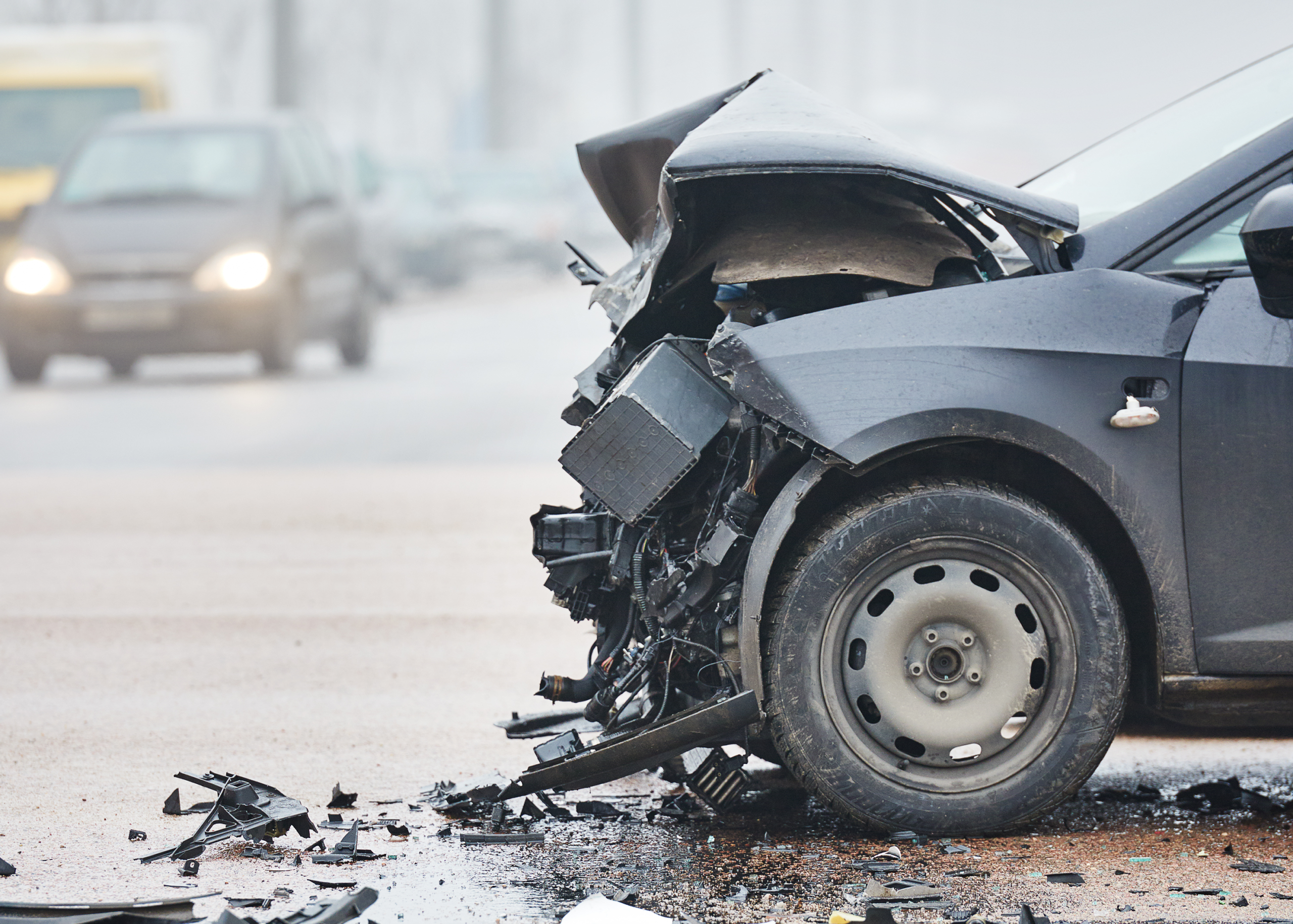
Chest Pain After a Car Accident: What You Should Know
Chest pain after a car accident can be scary, especially when you don’t know the cause. Chest pain can be attributed to a fractured rib or internal organ damage, like a myocardial contusion or punctured lung. Medical attention is necessary to diagnose chest injuries after a car crash.
If you’re experiencing chest pain after a car accident, visit a medical professional immediately. The longer you wait to receive medical treatment, the worse the injury may become—and the worse an injury becomes, the higher the medical bills it incurs. Rather than face climbing expenses and debilitating pain alone, seek help now for chest pain after a car accident.
Keep reading to learn what you should know about chest pain after an accident, and how medical and legal professionals can help on your path to recovery.
What to Do if You’ve Suffered a Chest Injury
If you’ve suffered a chest injury during a car crash, seek medical attention as soon as possible. Chest pain from a car accident can indicate a severe problem, even if the symptoms do not appear right away. It can take 24 to 48 hours for chest injury symptoms to develop.
After a car accident, chest pain may last for days or even weeks. The only way to know if your chest injury is serious is to undergo diagnostic tests, such as an MRI to ensure an accurate diagnosis. The sooner you visit a medical professional, the quicker you and your doctor can determine if your injury is potentially life-threatening.
Once you receive a diagnosis for your injury, adhere to the course of treatment recommended by your doctor. Remember, your chest houses some of your most important organs—including your heart and lungs—which you cannot live without. If you’ve suffered a chest injury from a car accident, you must take the necessary steps to secure the safety of these organs.
General Chest Injury Symptoms
If you suffer a chest injury in a car crash, you will likely feel pain or discomfort when applying pressure to the area. You may also feel pain when laughing, sneezing, coughing, or making specific movements. In some cases, you may still feel chest pain and discomfort when remaining completely still, as even breathing can feel like a strenuous task.
If you’ve been involved in a car accident and are experiencing any of the following symptoms, seek medical treatment immediately:
- Dizziness or lightheadedness
- Low energy or fatigue
- Nausea or vomiting
- Pain in the ribs
- Irregular heartbeat
- Low blood pressure
- Shortness of breath or difficulty breathing
- Wheezing
- Crackling sound when breathing
- Sharp pain when bending or twisting the upper body
Does Whiplash Cause Chest Pain?
Whiplash is commonly known as a neck injury, and many are surprised to learn that whiplash can cause chest pain. The rapid motion of a car accident drives the head and neck backward and forward, tearing sensitive ligaments and other soft tissues.
In serious cases, a whiplash injury can stretch and tear soft tissues in the chest, including ligaments that attach both the spine and ribs. As a result, a car accident victim with severe whiplash may experience chest pain, swelling, and stiffness when deep breathing or coughing.
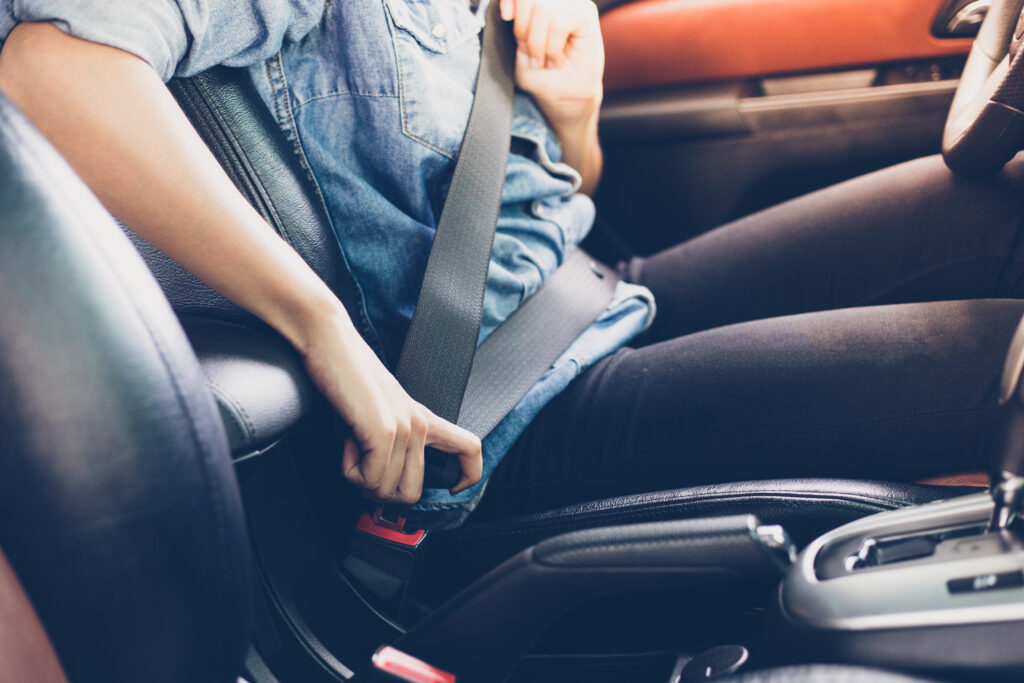
Common Causes of Car Accident Chest Pain and Injuries
Chest pain after a car accident is incredibly common, especially in head-on and rear-end collisions. The energy of a crash often launches an accident victim forward, forcing them to slam into the seat belt, airbags, steering wheel, and dashboard. Learn more about why these vehicle structures are a common cause of chest pains after an accident.
Seat Belts
If you were recently involved in a car accident, there’s a significant possibility that your seat belt saved your life. Your injuries could have been a fatality without the help of a seat belt. However, in the process of protecting you from a life-threatening injury, your seat belt might have caused injuries of its own.
A standard seat belt is worn across your chest and stomach to keep you firmly in your seat during a crash. The sheer force required to restrain your body may cause several seat belt injuries, such as bruising on the chest and stomach, a fractured rib or sternum, or internal organ damage.
Airbags
Just like a seat belt, an airbag can save your life during a crash but airbags can also be responsible for chest pain after a car accident. Airbags release a tremendous amount of force upon deployment, most of which is directed at your chest.
After an accident that involved airbags, you may experience chest injuries like a broken rib, punctured lung, or another internal injury such as a bruised heart.
Steering Wheels and Dashboards
During an accident, the blunt force trauma of the collision will toss the vehicle’s occupants against whatever is closest to them. Even while wearing a seat belt, the driver’s proximity to the steering wheel and the passenger’s proximity to the dashboard can cause chest injuries. Striking either hard surface can cause soft tissue injuries like bruising, muscle strain, or a broken bone.
Types of Chest Injuries Sustained in Car Accidents
There are several types of chest injuries sustained in car accidents, many of which share common symptoms. An accurate diagnosis from a medical professional is crucial to proper treatment. Take a look at the most common causes of chest pain after a car accident, how their symptoms vary, and what requires immediate medical intervention.
Cardiac Contusions (Bruised Heart)
Your heart is an organ that’s primarily composed of muscle. A cardiac contusion occurs when the muscle that makes up the heart is bruised. Also referred to as a myocardial contusion or bruised heart, a cardiac contusion is often caused by the blunt force trauma inflicted to the chest during an accident.
Symptoms of a cardiac contusion include:
- Feeling faint or lightheaded
- Pain or tenderness in the chest
- Heightened pain when breathing
- Bruising on the external or internal chest wall
- Irregular heart rate
- Low blood pressure
- Shortness of breath
- Shallow breathing
- Coughing up blood
The heart muscle is often bruised when an accident is severe enough to cause a broken rib or sternum.
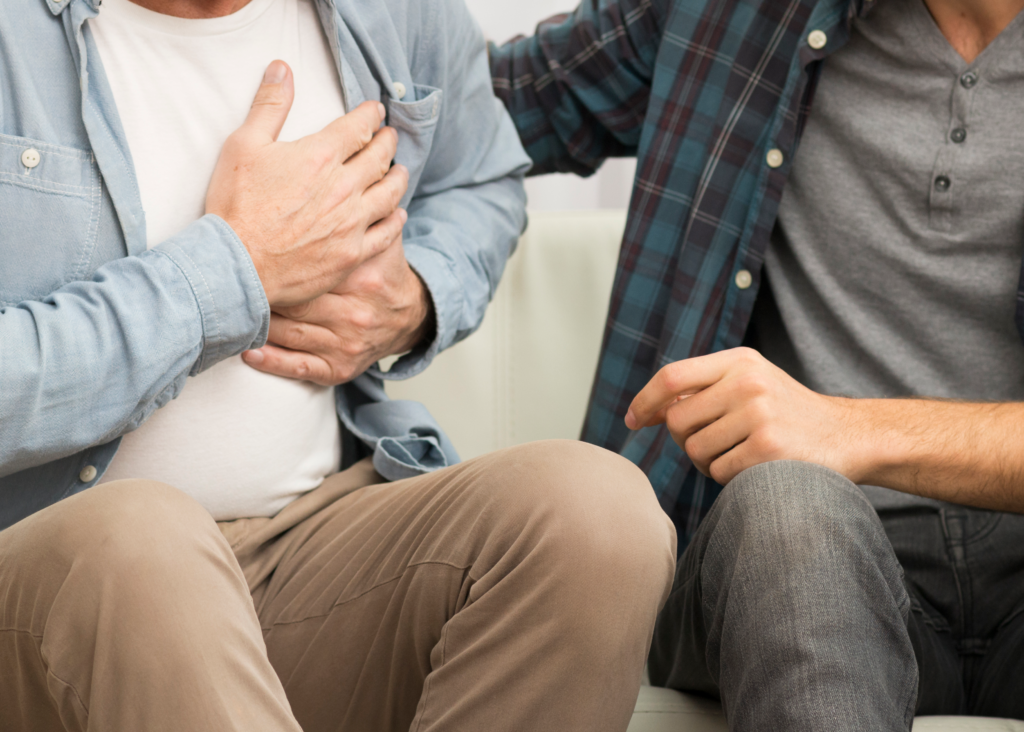
Heart Attacks
Heart attacks are one of the most common causes of chest pain and can be life-threatening after a car accident. A heart attack occurs when the blood supply to the heart is blocked, interrupting the flow of oxygen and causing irreparable damage to heart tissue. Both the stress of an auto accident as well as blunt force trauma can trigger a heart attack.
If you’re experiencing any of the below symptoms of a heart attack, visit a doctor immediately:
- Fatigue
- Dizziness
- Cold sweat
- Pressure or tightness in the center of the chest
- Sudden pain in the left arm that worsens over time
- Nausea or abdominal pain
- Shortness of breath
If you’re wondering if your heart can stop if you get hit in the chest, rest assured that’s very unlikely after a car accident. Commotio Cordis, or a dramatic change in a heartbeat that can stop the heart, only occurs when a victim is struck at a precise area during an exact moment of a heartbeat, which is rare during an accident.
Broken Ribs or Sternum
A fractured rib or sternum occurs when the force of impact during an accident cracks or shatters the bones in your chest. Your sternum is a long, flat bone that’s connected to the top half of your ribs. When the upper part of your body is slammed against a seat belt, airbag, steering wheel, or other structure inside of the vehicle, it can fracture the bones severely enough that they can be displaced or puncture internal organs.
Symptoms of a broken rib or sternum include:
- Swelling and tenderness
- Sharp pain when breathing
- Sudden pain when coughing, laughing, or twisting
- Shortness of breath or trouble breathing
- Bruising on the skin above the affected bone
In some auto accidents, the force of impact may bruise the ribs and sternum rather than break them. The symptoms of bruised ribs are similar to broken ribs, including chest pain while breathing or coughing. The only way to differentiate between a bruised rib and a broken rib is to receive diagnostic tests like an MRI or X-ray.
Muscle Strains and Injuries to Ligaments and Tendons
Soft tissue injuries are a common culprit of chest pain after an accident. The chest is home to many different types of soft tissues, including muscles, ligaments, connective tissue, and cartilage. The unexpected force of a car accident can stretch or tear these soft tissues, resulting in a muscle strain or ligament sprain.
Pain symptoms of a soft tissue injury, such as a muscle strain, include:
- Muscle spasms
- Swelling and tenderness
- Bruising at the injury site
- Sharp pain while breathing
- Limited mobility in the affected area
Lung Injuries
A lung injury is an internal organ injury that impacts the two lungs located inside your chest cavity. After an accident, your lungs can become bruised, punctured, or even collapse. Severe lung injuries, such as a puncture or collapse, are typically common when the ribs or sternum are fractured.
Symptoms of a lung injury include:
- Fever
- Accelerated heart rate
- Shortness of breath or difficulty breathing
- Consistent cough
- Coughing up blood
Lung injuries can be life-threatening when left untreated. If you’re experiencing any of the above symptoms, visit a doctor immediately.
Other Internal Organ Injuries
Your chest and abdomen house your spleen, kidneys, liver, intestines, and stomach, all of which are susceptible to internal organ damage due to the high impact of a crash. These organs can suffer bruising or, in severe cases, internal bleeding. Internal bleeding is a life-threatening injury that will require emergency surgery to fix.
Symptoms to watch for if you believe you have an internal organ injury include:
- Dizziness
- Fatigue or low energy
- Weakness
- Nausea and vomiting
- Loss of coordination
- Severe chest or abdominal pain
- Difficulty using the bathroom
Panic Attacks
Panic attacks are a type of emotional injury that can result from the stress of a car accident and cause pain and tightness in the chest. During a panic attack, you might feel lightheaded, dizzy, and tingling in your hands or face. Emotionally, panic attacks may cause anxiety, depression, and fear of losing control.
Symptoms of a panic attack include:
- Cold sweat
- Chest pain
- Increased heart rate
- Shortness of breath
- Shaking or trembling
- Feeling faint
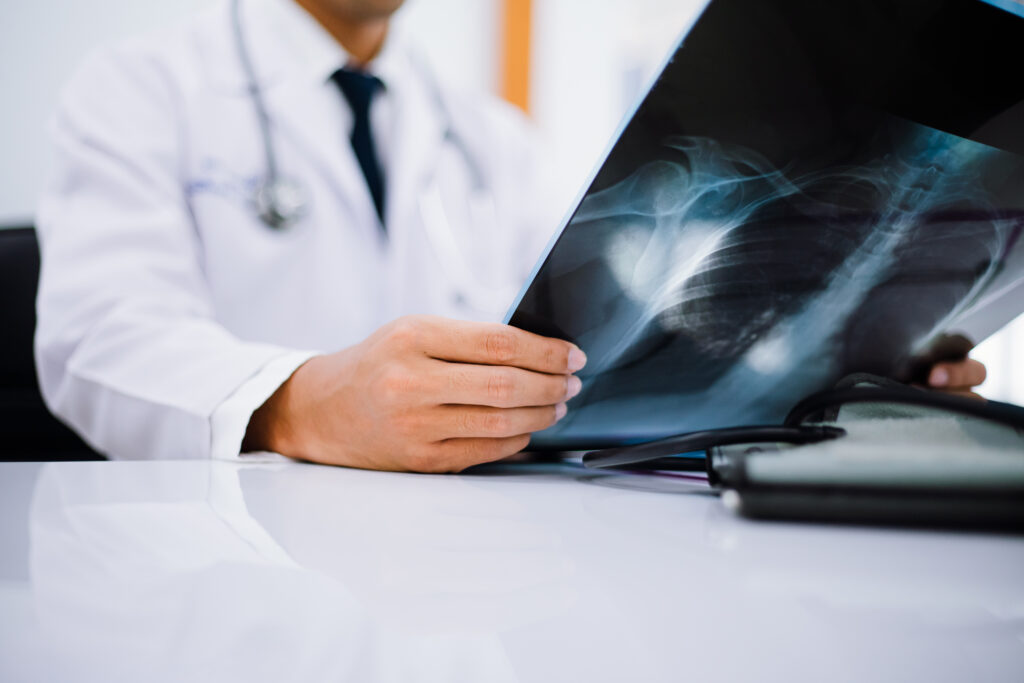
How Chest Pain is Diagnosed and Treated After a Car Accident
Whether you feel chest pain immediately after an accident or in the following hours, you must visit a medical professional for immediate diagnosis. Your doctor will utilize a few different types of diagnostic tests and medical imaging to accurately determine the source of your chest pain.
Some tools for diagnosing chest pain after an accident include:
- X-rays
- Magnetic resonance imaging (MRI)
- Computerized tomography scan (CT scan)
- Electrocardiogram (ECG)
- Blood tests
Once your doctor issues a formal diagnosis, you can begin medical treatment. Treatment plans for a chest injury will vary; however, most involve a significant period of rest. Depending on the severity of the injury, prescription pain medication, blood thinners, or surgery may be necessary. Treatment for chest injuries can become expensive over time, so you may need to file a personal injury claim to recoup your expenses.
Can I Sue for Chest Pain After a Car Wreck?
Yes, you can sue for chest pain after a car accident. First, it’s recommended you work with a car accident attorney to file a personal injury claim against the at-fault driver’s insurance policy. If the insurance company rejects your claim or issues a less-than-satisfactory settlement offer, you can file a lawsuit against the at-fault driver for their role in causing your chest injuries.
Car accident victims are allowed to sue for all expenses incurred from a crash, known as damages by car accident attorneys. Victims can sue for medical expenses from bodily injury, property damage, and more. Take a look at the compensation victims could receive for chest pain.
What Compensation Could You Receive for Chest Pain?
Compensation in personal injury claims is broken into two categories:
- Non-economic or general damages
- Economic or special damages
Non-economic damages are expenses that are not tied to a specific monetary amount. Pain and suffering or panic attacks caused by a car crash could be factored into compensation for chest pain after an accident as non-economic damages.
Economic damages are expenses with a specific monetary amount, like medical bills or lost wages. Additional economic damages you could seek compensation for include future medical expenses, out-of-pocket medical costs, attendant care, and property damage.
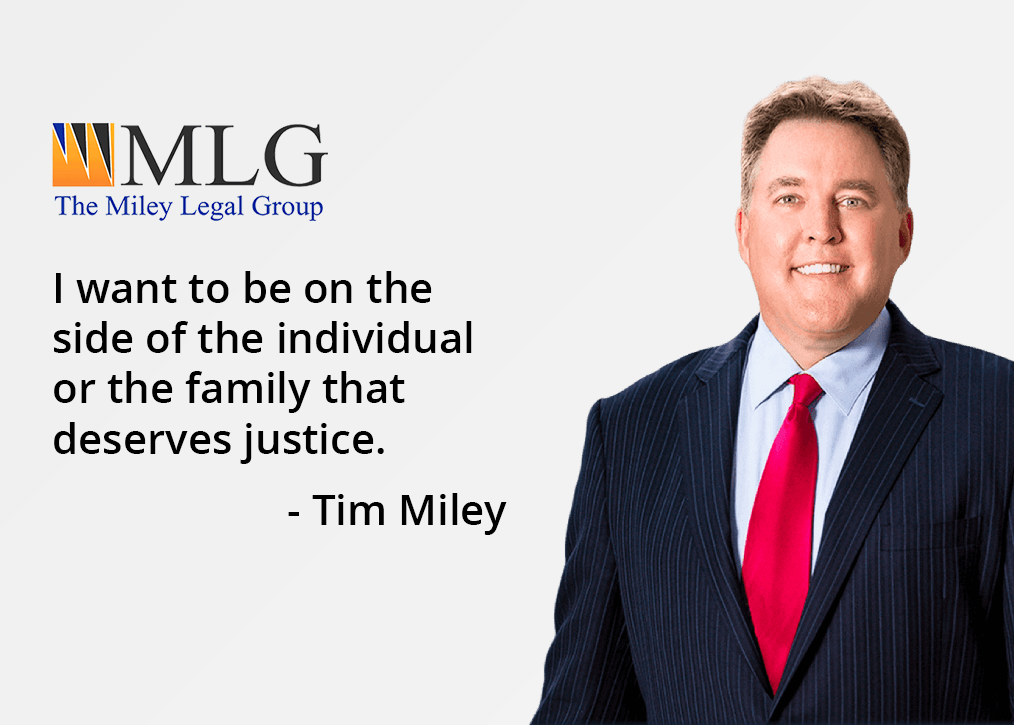
How an Attorney at The Miley Legal Group Can Help You
If you or someone you love was recently involved in a car accident that was of limited or no fault of your own and has suffered a chest injury, reach out to The Miley Legal Group today. One of our trusted car accident attorneys will work by your side to fight for fair compensation so that you can focus on healing from your chest pain.
Contact us today for a free consultation with a knowledgeable car accident lawyer.

